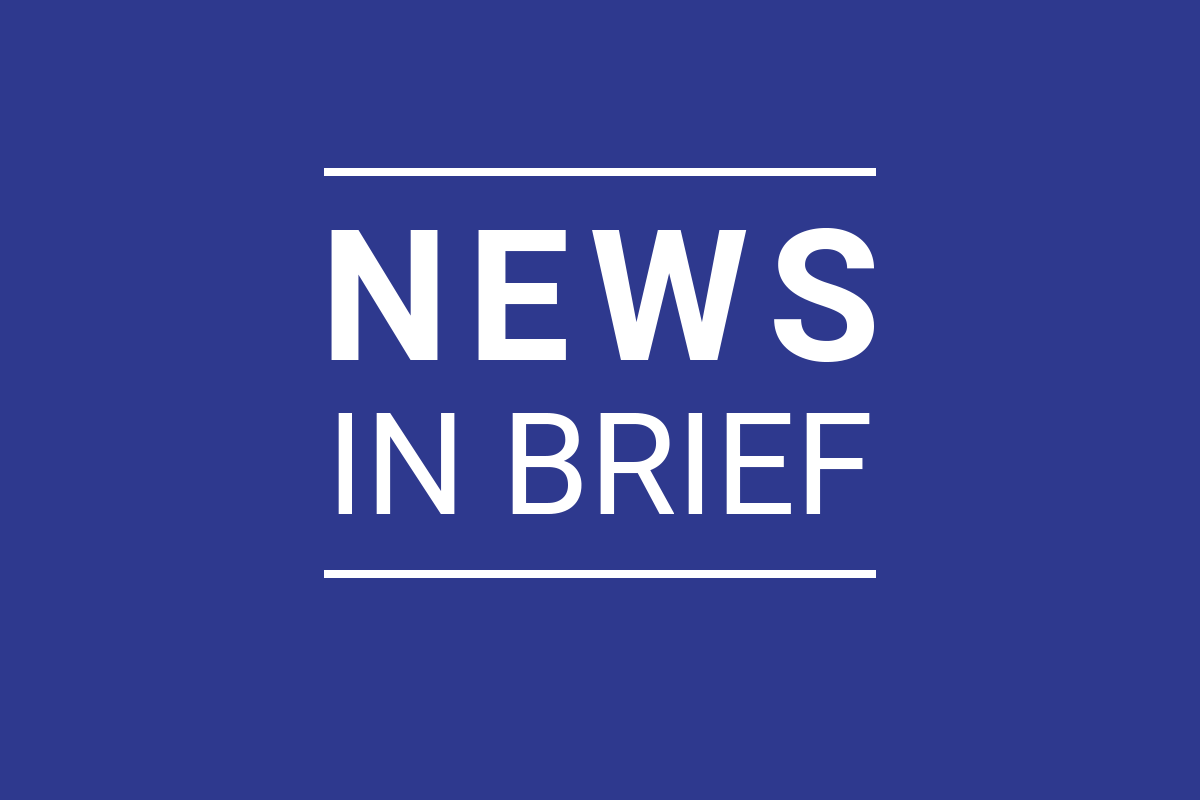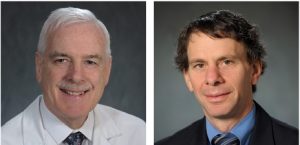
Amended Trial: Gelareh Sadigh and Ilana Graetz Give an Update on the EAQ221CD/CONCURxP Trial for Patients with Breast Cancer
April 24, 2025
News in Brief, June 2025
June 11, 2025From the Co-Chairs, April 2025


By Peter J. O’Dwyer, MD (left)
and Mitchell D. Schnall, MD, PhD
Since the submission of the ECOG-ACRIN NCI National Clinical Trials Network (NCTN) Grant application in February, a flurry of activity has followed in March and early April. Major protocols are under development in several diseases, and discussions with our industry colleagues are helping to refine these in ways that portend collegiality in our shared goals. For patients with lung, GI, and breast cancer, novel approaches will soon be brought forward. At the other end of the research trajectory, findings in lung and breast cancer are being made public and will be discussed at the Spring Group Meeting in Tampa, as well as in these pages next month. Some large correlative studies are in progress thanks to the efforts of many, not least our colleagues in the Central Biorepository and Pathology Facility (CBPF).
Founded by Dr. Stanley Hamilton, the facility has been ably led by Dr. Ignacio Wistuba for the past 11 years. Dr. Wistuba, a distinguished immunology researcher, has been a professor in the Department of Translational Molecular Pathology with a joint appointment in the Department of Thoracic/Head and Neck Medical Oncology, and co-director of the Khalifa Institute of Personalized Cancer Institute at the MD Anderson Cancer Center (MDACC). There, he has also served as director of the Thoracic Molecular Pathology Laboratory, the University of Texas Lung SPORE Tissue Bank, and the MDACC Institutional Tissue Bank.
Dr. Wistuba has now accepted a position at Moffitt Cancer Center in Tampa as the inaugural chair of translational pathology—but he will be at our Tampa meeting and will continue to participate in EA trials. Please thank him for his years of effective leadership in correlative science. He will be succeeded as CBPF director by Dr. Scott Jewell, an experienced leader in pathology, with extensive experience in biobanking. Dr. Jewell will also attend the meeting in Tampa, where we will take the opportunity to welcome him to his new role with EA. Dr. Jewell is a professor in the Department of Pathology at MDACC. Previously, he served as a professor and director of the Program for Technologies and Cores and the Program for Biospecimen Science at Van Andel Research Institute. He was also president of the International Society for Biological and Environmental Repositories (ISBER) from 2009 to 2010.
The Spring Group Meeting in Tampa will be more concentrated than usual but will be anchored as always by the Comis Translational Science Symposium and the General Session. The focus of the Comis Symposium (Tuesday, May 13 from 3:00-5:00 pm ET) is circulating tumor DNA (ctDNA) as a marker of minimal residual disease. This is a burgeoning field across numerous cancer types, and all those with an interest in using ctDNA to direct treatment strategies should attend. The line-up of speakers is truly outstanding, and an active discussion will occupy most of the second half of the session.
The General Session will feature talks on high-priority issues in cancer research, such as cancer interception, real-world evidence, and artificial intelligence. Additionally, a highlight of the session will be a patient perspective on the importance of the patient-oncologist relationship by Glenn Sykes, a long-time member of the GU Cancer and Cancer Research Advocates Committees. We will also take this opportunity to highlight changes in committee leadership and recognize our colleagues who have served in these positions as well as those who have stepped in for the future of the committees and the Group. Mark your calendars for this plenary session, Wednesday, May 14 from 5:30-7:30 pm ET.
Finally, an update on our rapidly-changing research environment. We have limited clarity on the issues that are important to the functioning of the Cooperative Group, including funding for the new NCTN Grant, and the critical matter of indirect costs. We await eagerly the issuance of the Request for Applications for the NCI Community Oncology Research Program (NCORP) Grant, the vehicle that permits extension of our therapeutic trials to the community, and underpins studies in symptom control, cancer interception, and health care delivery. We will keep you updated as policies evolve.
Read the April 2025 issue here.
![ECOG-ACRIN logo[19516]275×75](https://blog-ecog-acrin.org/wp-content/uploads/2021/03/ECOG-ACRIN-logo19516275x75.png)
